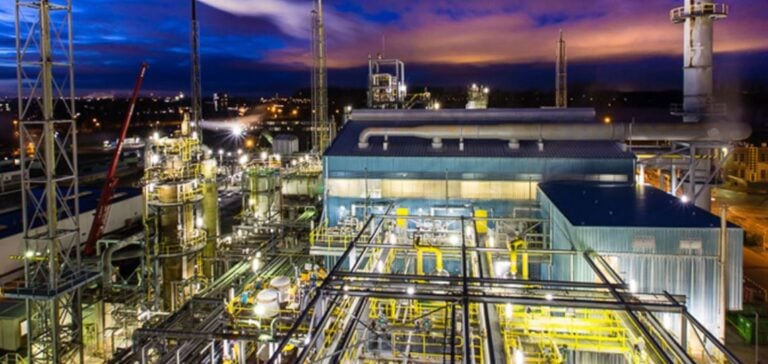Pacific Energy is designing and implementing a hybrid power system for the Tronox mineral sands mine near Hatfield, New South Wales. The system will integrate an 11 MW solar farm, a 3 MW / 6 MWh battery energy storage system (BESS), and 12 MW of diesel generation complemented by 13 km of high-voltage power lines. This ambitious project will replace 41 dispersed diesel generators currently in use, centralizing the power supply at a single point, thus considerably streamlining the site’s energy operations.
Reducing diesel emissions and use
The new energy system is designed to run exclusively on renewable energy on days when solar production exceeds demand at the mine site. With effective integration of solar and BESS, the system will provide up to 40% of the renewable energy required, reducing Tronox’s annual carbon emissions by almost 13,000 tonnes and cutting diesel consumption by almost five million liters a year. The initiative is part of a wider framework of support for Tronox’s sustainability commitments, aimed at better controlling costs and managing its environmental footprint.
Impact and Future Expansion
Jamie Cullen, CEO of Pacific Energy, expressed his satisfaction with the project’s contribution to Tronox’s sustainability objectives. The reduction from 41 to just 6 diesel generators not only cuts fossil fuel consumption and associated emissions, but also reduces operating and maintenance costs. The system design also contains provisions for the addition of renewable and thermal energy sources, anticipating future expansion of Tronox’s operations at Atlas-Campaspe.
Strategic expansion on the East Coast
This agreement with Tronox marks a key step in Pacific Energy’s operational expansion onAustralia’s east coast, signaling a new era for this energy supplier, originally based on the west coast. The creation of Pacific Energy Connected (PEC), led from Melbourne, will leverage the company’s all-service delivery model to support hydrogen projects nationwide, as well as provide stand-alone power systems, energy storage systems and renewable energy microgrids to isolated East Coast markets and the mobility sector.
Pacific Energy and Tronox join forces in an innovative project that not only redefines the energy supply to the Atlas-Campaspe mine, but also places Pacific Energy at the forefront of Australia’s decarbonized energy suppliers. This partnership underlines the growing importance of integrating sustainable energy solutions into the extractive industries.






















